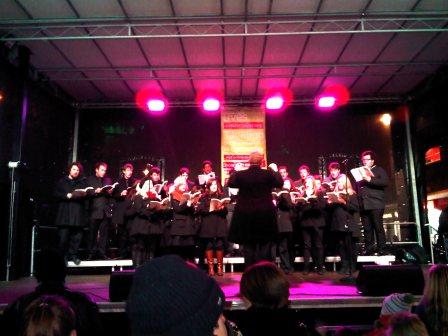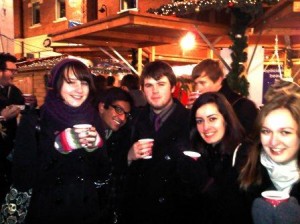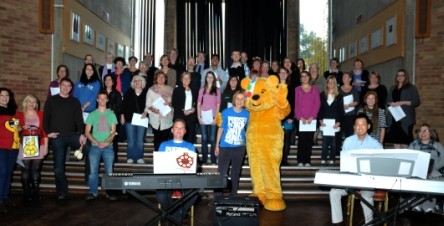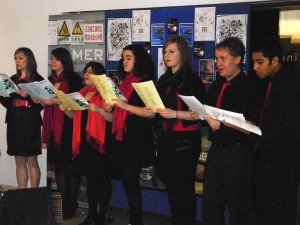It’s with great delight that we can reveal that Aisha Bové has recently received her diploma certificate from the conservatory of music in Luxembourg. In her first year at Kent, Aisha sings with the University’s Chorus, Cecilian Choir and Sing!, and plays cello in the Symphony Orchestra. Here, Aisha reports on the ceremony, and her trip down memory lane…
—-
Reward for one’s musical achievement? That’s probably something every musician is aiming for. Simple applause, a cheering crowd or a convinced board of examiners makes a musician feel that what he or she is doing is being appreciated. A diploma was the reward in my case, a simple piece of paper which made me get on a plane and head back to what I call home; the small country of Luxembourg.
It was an invitation from the headmaster of the conservatory of music in Luxembourg which made me go back to the place where a huge part of my musical experiences have been formed up to now. The trip down memory lane was obviously included. First cello lessons, nine years of orchestra rehearsals, numerous concerts and an amazing four years of singing lessons.
 The diploma I worked for last year certifies my passing of the exam ‘examen de la première mention avec la mention très bien’. The actual exam was the third exam you can take in the singing section of the conservatory, and candidates normally present themselves to the board of examiners, formed by professional musicians from France or Belgium, Luxembourg and Germany, in their 5th or 6th year. The actual exam is divided into two parts, the first part being more ‘technical’ with a singing exercise and two other pieces at one’s choice.
The diploma I worked for last year certifies my passing of the exam ‘examen de la première mention avec la mention très bien’. The actual exam was the third exam you can take in the singing section of the conservatory, and candidates normally present themselves to the board of examiners, formed by professional musicians from France or Belgium, Luxembourg and Germany, in their 5th or 6th year. The actual exam is divided into two parts, the first part being more ‘technical’ with a singing exercise and two other pieces at one’s choice.
For the second part you have to prepare four pieces, of which one has to be an aria and one has to be a German ‘Lied’. My choice of pieces were G.F.Haendel’s ‘Come and trip it’, F. Mendelssohn’s Lied ‘Auf Flügeln des Gesanges’ (On wings of song), F. Hensel’s ‘Warum sind denn die Rosen so blass?’, G. Fauré’s ‘Le Voyageur’ to cover the French part of the repertoire, and two Arias from W.A. Mozart’s amazing opera ‘Cosí fan tutte’, which were my absolute favourites. All the hard work was rewarded not only by the great feeling you get when standing in front of a board of examiners performing and simply showing your love for music, but also by the moment you hear your name get called, you step on the stage, get your diploma and remember all the work and energy you had put into it. But it was at that moment that I also had to realise that this diploma is most likely my last one at the conservatory, and you realise a certain sense of finality.
Since September, my new place of music making is the University of Kent, and I’m happy to be a small part of this big, welcoming department. Because one thing I learned in all these years is that, wherever you go, take your music with you and you’ll be a step closer to home. As they say, music is a universal language, and once you get infected, you’re sure to be addicted to the music-drug all your life, in some way or another.





 The student group, conducted by Maia Peacock and accompanied by Adam Henriksen are sure to warm up even the chilliest November night with performances of popular songs and showtunes, including California Dreaming.
The student group, conducted by Maia Peacock and accompanied by Adam Henriksen are sure to warm up even the chilliest November night with performances of popular songs and showtunes, including California Dreaming.